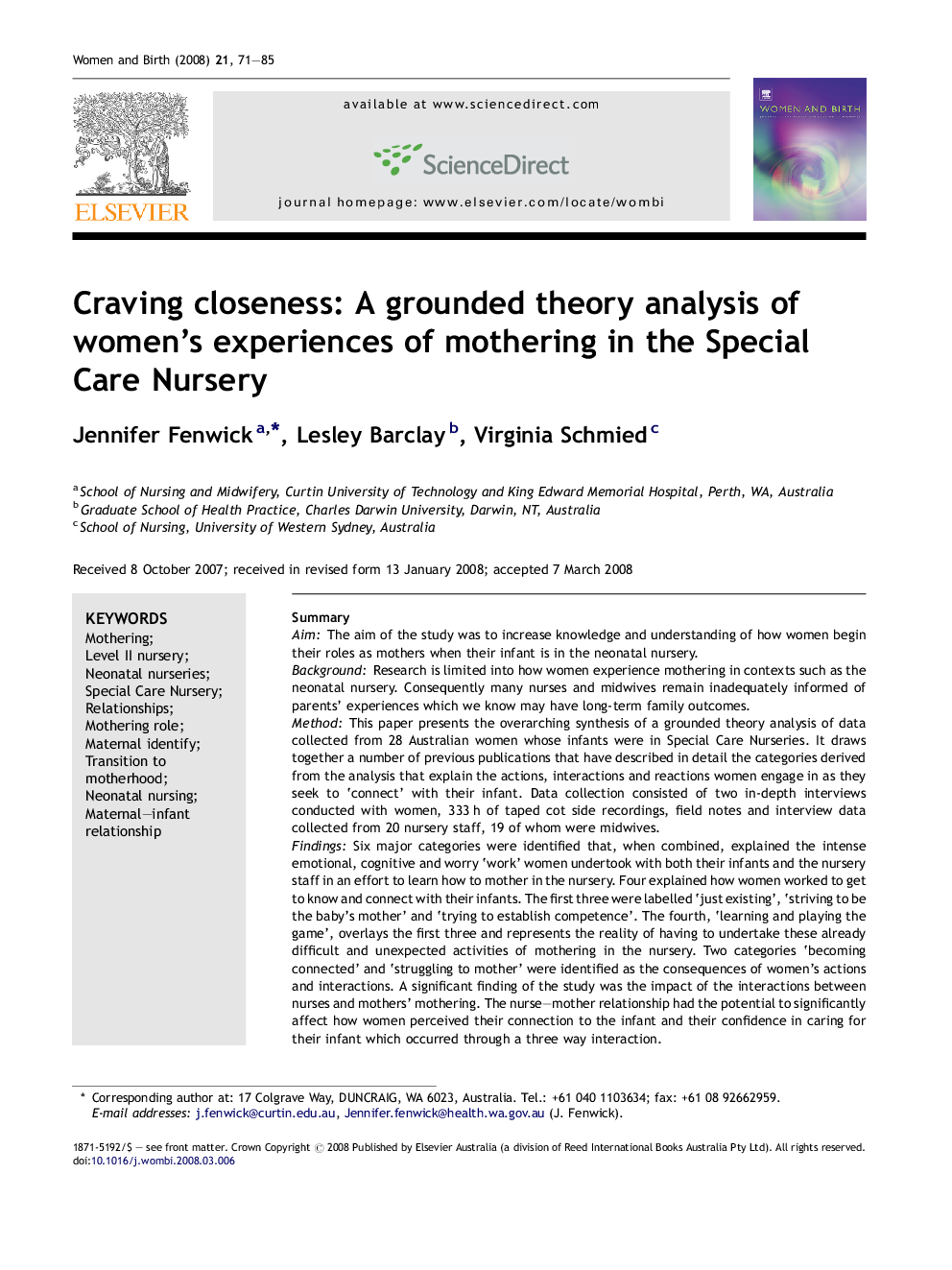| Article ID | Journal | Published Year | Pages | File Type |
|---|---|---|---|---|
| 2636523 | Women and Birth | 2008 | 15 Pages |
SummaryAimThe aim of the study was to increase knowledge and understanding of how women begin their roles as mothers when their infant is in the neonatal nursery.BackgroundResearch is limited into how women experience mothering in contexts such as the neonatal nursery. Consequently many nurses and midwives remain inadequately informed of parents’ experiences which we know may have long-term family outcomes.MethodThis paper presents the overarching synthesis of a grounded theory analysis of data collected from 28 Australian women whose infants were in Special Care Nurseries. It draws together a number of previous publications that have described in detail the categories derived from the analysis that explain the actions, interactions and reactions women engage in as they seek to ‘connect’ with their infant. Data collection consisted of two in-depth interviews conducted with women, 333 h of taped cot side recordings, field notes and interview data collected from 20 nursery staff, 19 of whom were midwives.FindingsSix major categories were identified that, when combined, explained the intense emotional, cognitive and worry ‘work’ women undertook with both their infants and the nursery staff in an effort to learn how to mother in the nursery. Four explained how women worked to get to know and connect with their infants. The first three were labelled ‘just existing’, ‘striving to be the baby's mother’ and ‘trying to establish competence’. The fourth, ‘learning and playing the game’, overlays the first three and represents the reality of having to undertake these already difficult and unexpected activities of mothering in the nursery. Two categories ‘becoming connected’ and ‘struggling to mother’ were identified as the consequences of women's actions and interactions. A significant finding of the study was the impact of the interactions between nurses and mothers’ mothering. The nurse–mother relationship had the potential to significantly affect how women perceived their connection to the infant and their confidence in caring for their infant which occurred through a three way interaction.ConclusionsIt becomes clear that the intense work women undertake as mothers in the nursery is focused on not only the infant, which might have been expected, but also the nursery staff. It is driven by their desire to develop or re-establish some sense of competence in the eyes of the nurse and to achieve control over the situation. Achieving physical closeness with the baby was a major strategy through which women not only learned about and gained intimate knowledge of their infant, but also demonstrated authority and ownership. It appears that reorientating the delivery of services from the infant to the mother–infant dyad would improve the care women and families receive during their nursery experience.
